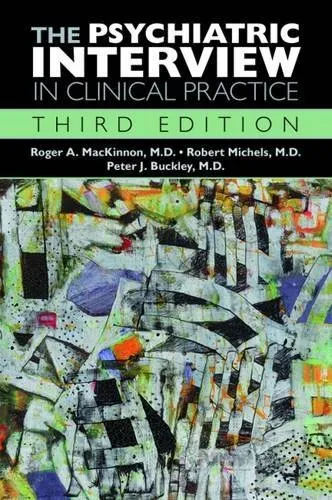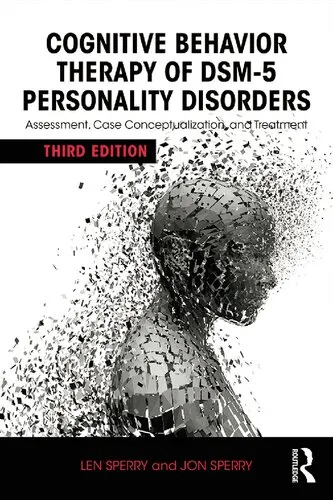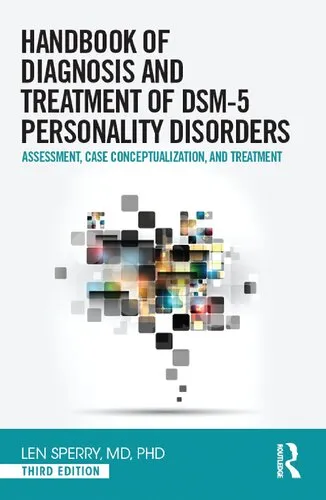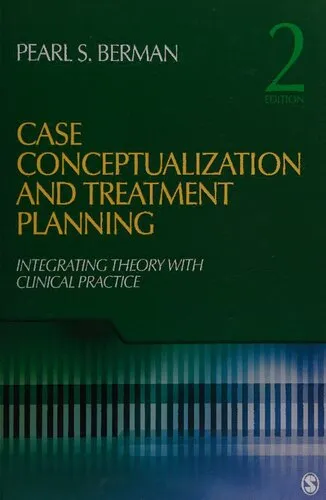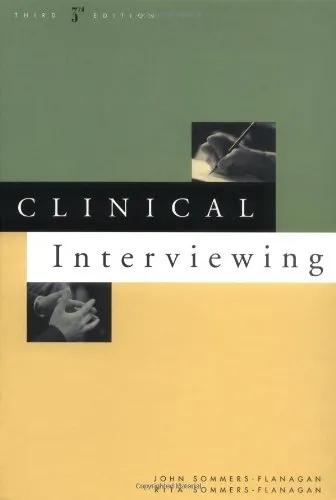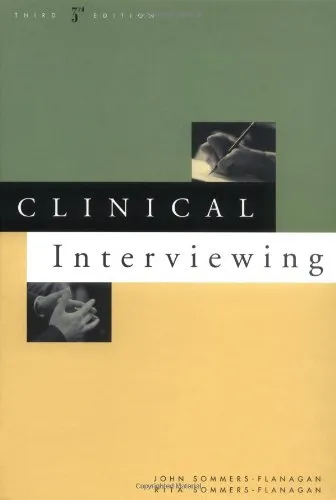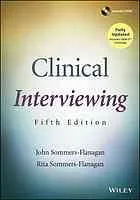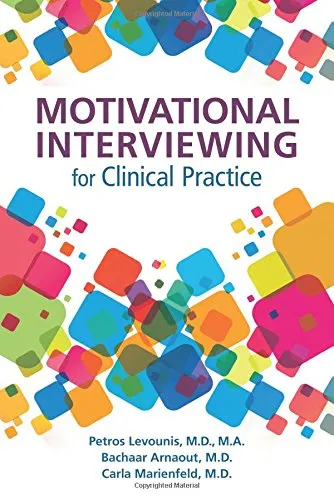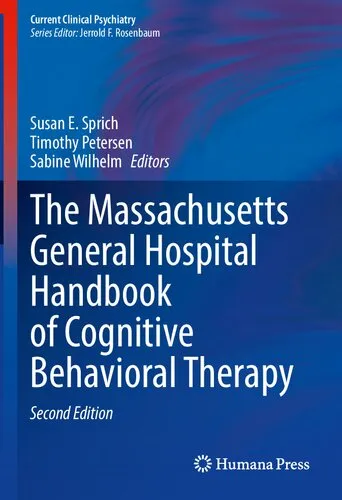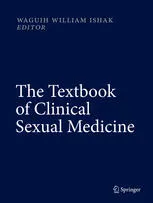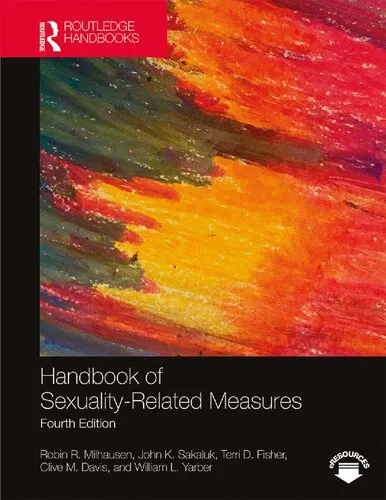The Psychiatric Interview in Clinical Practice
4.8
بر اساس نظر کاربران

شما میتونید سوالاتتون در باره کتاب رو از هوش مصنوعیش بعد از ورود بپرسید
هر دانلود یا پرسش از هوش مصنوعی 2 امتیاز لازم دارد، برای بدست آوردن امتیاز رایگان، به صفحه ی راهنمای امتیازات سر بزنید و یک سری کار ارزشمند انجام بدینکتاب های مرتبط:
معرفی کتاب: مصاحبه روانپزشکی در عمل بالینی
کتاب مصاحبه روانپزشکی در عمل بالینی به نویسندگی Roger A. Mackinnon, Robert Michels, و Peter J. Buckley یکی از منابع اصلی و مرجع در زمینه یادگیری هنر مصاحبه روانپزشکی است. این کتاب با ارائه بینشهای عمیق و تکنیکهای کاربردی، راهنمایی جامع برای روانپزشکان، روانشناسان، و دیگر متخصصان سلامت روان فراهم میکند تا ارتباط حرفهای و مؤثری با بیماران داشته باشند.
خلاصهای از کتاب
کتاب مصاحبه روانپزشکی در عمل بالینی شامل بررسی دقیق اصول مصاحبه بالینی، انواع تکنیکهای ارتباطی، چگونگی آشکارسازی نشانهها، و تحلیل روانپزشکی است. این اثر به روانپزشکان کمک میکند تا با استفاده از مهارتهای ارتباطی مؤثر، قادر شوند تاریخچه روانی، شکایات بیمار، و زمینههای اجتماعی-فرهنگی مؤثر بر روانشناختی فرد را به خوبی شناسایی و درک کنند.
نویسندگان به طور خاص روی اهمیت نحوه برخورد اولیه با بیمار، پرسشهای باز و بسته، و استفاده از زبان غیرکلامی تأکید میکنند. در این کتاب همچنین برای درک صحیح اختلالات روانی بحثهای علمی و کاربردی فراوانی مطرح شده است که به خواننده کمک میکند تعاملات بالینی مؤثر و حرفهای داشته باشد.
نکات کلیدی
- تأکید بر هنر گوش کردن فعال و همدلانه در جلسات مشاوره.
- آموزش تکنیکهای پیشرفته در پرسشگری و تحلیل اطلاعات بیمار.
- مباحث تخصصی درباره تفاوتهای فرهنگی، نسلها، و تأثیرات محیطی در مصاحبه روانپزشکی.
- توجه ویژه به نحوه ارائه تشخیص و گفتوگو درباره برنامه درمانی با بیمار.
- شیوههای مدیریت چالشها و موقعیتهای پیچیده در تعامل بالینی.
جملات معروف از کتاب
“مصاحبه روانپزشکی یک هنر است؛ هنری که از دقت علمی، مهارتهای ارتباطی، و درک همدلانه حاصل میشود.”
“هر بیمار یک داستان منحصر به فرد دارد که باید با حوصله و دقت شنیده شود.”
چرا این کتاب مهم است؟
کتاب مصاحبه روانپزشکی در عمل بالینی درک علمی و عملی منحصر به فردی را در اختیار متخصصان سلامت روان قرار میدهد. با توجه به پیچیدگیهای ارتباطی که در جلسات روانپزشکی وجود دارد، این کتاب به عنوان ابزاری حیاتی برای یادگیری و توسعه مهارتهای کلیدی در این حوزه شناخته میشود. همچنین، این اثر به روند تشخیص و درمان کمک قابل توجهی میکند و نقش مؤثری در ارائه خدمات بهتر به بیماران ایفا میکند.
خواندن این کتاب برای هر فردی که در زمینه سلامت روان فعالیت میکند ضروری است، چرا که نه تنها باعث بهبود مهارتهای حرفهای میشود، بلکه دیدگاه جامعتر و عمیقتری نسبت به تعامل با انسانها و موقعیتهای پیچیده ارائه میدهد.
Introduction to The Psychiatric Interview in Clinical Practice
The art and science of psychiatry hinge on effective communication, empathy, and the nuanced understanding of human behavior. The Psychiatric Interview in Clinical Practice, authored by Roger A. Mackinnon, Robert Michels, and Peter J. Buckley, serves as a definitive guide for mental health professionals, students, and anyone seeking mastery in conducting psychiatric interviews. First published decades ago, this text remains a cornerstone in psychiatric education, offering timeless insights into establishing rapport, eliciting critical details, and forming accurate psychiatric assessments.
Detailed Summary
The book begins by exploring foundational principles that govern psychiatric interviews. These principles extend beyond mere question-and-answer formats, advocating for an approach rooted in empathy and an understanding of interpersonal dynamics. The authors dissect the layered complexities of interviewing a diverse patient population, highlighting how cultural, psychological, and biological factors intersect during the clinical encounter.
Subsequent chapters delve deep into specific techniques for engaging patients, including strategies for gathering a thorough psychiatric history, assessing mental status, and discerning the roots of presenting symptoms. There is careful attention paid to interviewing individuals with challenging presentations, such as those with psychosis, severe depression, or personality disorders.
In addition to clinical skills, the authors focus on the therapeutic alliance, underscoring the importance of building trust, addressing transference and countertransference, and navigating ethical dilemmas in psychiatric practice. Each chapter combines theoretical insights with practical applications, supplemented by clinical examples and illustrative dialogues that make concepts come alive.
By the end of the book, readers are equipped with the tools necessary to approach psychiatric interviews with confidence, sensitivity, and intellectual curiosity, ensuring they fulfill their goal of understanding and supporting patients in their mental health journey.
Key Takeaways
- The psychiatric interview is both an art and a science, requiring technical skill, empathy, and adaptability.
- Creating a strong therapeutic alliance is essential for gathering meaningful information and fostering patient trust.
- Each patient is unique, and cultural, social, and psychological factors must be carefully considered during the interview.
- Psychiatric interviewing involves a careful balance between open-ended exploration and structured questioning.
- Challenging clinical scenarios, such as interviews with resistant, anxious, or psychotic patients, can be navigated effectively using specific techniques highlighted in the text.
Famous Quotes from the Book
"The interview is not just a tool; it is a crucible in which the clinician's art, science, and humanity are tested."
"Empathy is not merely a technique—it is an essential condition for effective communication."
"Successful interviewing requires not only asking questions but listening beyond the answers."
"In psychiatry, the relationship between interviewer and patient shapes how stories are told and understood."
Why This Book Matters
In the ever-evolving field of psychiatry, foundational texts like The Psychiatric Interview in Clinical Practice play a critical role in shaping the competencies of mental health professionals. This book stands out not only for its depth and breadth but also for its ability to bridge clinical theory with practical application. It emphasizes the importance of human connection in the therapeutic process and provides readers with the tools they need to approach each patient encounter with grace, intelligence, and ethical rigor.
Whether you are a seasoned psychiatrist, a trainee, or a professional in adjacent fields such as psychology or social work, this book equips you with invaluable skills to navigate the complexities of mental health care. It encourages readers to approach psychiatric interviews not as a mechanical exchange of information but as a dynamic and deeply human process. For those committed to improving patient outcomes and advancing the field of psychiatry, this book remains essential reading.
دانلود رایگان مستقیم
شما میتونید سوالاتتون در باره کتاب رو از هوش مصنوعیش بعد از ورود بپرسید
دسترسی به کتابها از طریق پلتفرمهای قانونی و کتابخانههای عمومی نه تنها از حقوق نویسندگان و ناشران حمایت میکند، بلکه به پایداری فرهنگ کتابخوانی نیز کمک میرساند. پیش از دانلود، لحظهای به بررسی این گزینهها فکر کنید.
این کتاب رو در پلتفرم های دیگه ببینید
WorldCat به شما کمک میکنه تا کتاب ها رو در کتابخانه های سراسر دنیا پیدا کنید
امتیازها، نظرات تخصصی و صحبت ها درباره کتاب را در Goodreads ببینید
کتابهای کمیاب یا دست دوم را در AbeBooks پیدا کنید و بخرید
1315
بازدید4.8
امتیاز0
نظر98%
رضایتنظرات:
4.8
بر اساس 0 نظر کاربران
Questions & Answers
Ask questions about this book or help others by answering
No questions yet. Be the first to ask!
